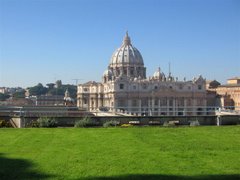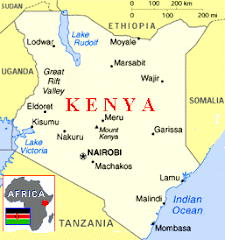For America’s most famous Catholic, morality and politics had little to do with each other.
 Today Massachusetts mourns its Lion of the Senate, Ted Kennedy. At Dunkin Donuts, the flags are flying at half mast. Boston's famously snarled traffic has come to a standstill because of "Kennedy events". The casket of Camelot's last survivor made a final tour of its shrines – Hyannis Port, his family's summer residence, St Stephen's, his mother’s church in Boston’s North End, and Faneuil Hall, where he had announced his unsuccessful bid for the presidential 1980 nomination. The Massachusetts royal family waved through tinted car windows at the crowds. Thousands passed through the Presidential Library at Harvard dedicated to his brother to view the casket and sign the condolences books.
Today Massachusetts mourns its Lion of the Senate, Ted Kennedy. At Dunkin Donuts, the flags are flying at half mast. Boston's famously snarled traffic has come to a standstill because of "Kennedy events". The casket of Camelot's last survivor made a final tour of its shrines – Hyannis Port, his family's summer residence, St Stephen's, his mother’s church in Boston’s North End, and Faneuil Hall, where he had announced his unsuccessful bid for the presidential 1980 nomination. The Massachusetts royal family waved through tinted car windows at the crowds. Thousands passed through the Presidential Library at Harvard dedicated to his brother to view the casket and sign the condolences books.
For Boston, it is a Diana moment.
Edward M. Kennedy died of a brain tumour on Tuesday at the age of 77. He had been in the Senate since he was 30 and stayed there for 47 years, the third longest-serving Senator in American history. Some wits quipped that while most politicians grow up and then enter politics, Kennedys enter politics and grow up later.
But Massachusetts voters doted on Ted Kennedy and patiently gave him time to mature. There was his expulsion from Harvard for cheating; there were rumours about drinking and womanizing; there was Chappaquiddick; there was his 1982 divorce, his 1992 remarriage (after an annulment from the Catholic Church). He was a Kennedy – Joe and Rose's son, Jack and Bobby's brother – and nothing stuck. He had a scare in the 1994 election when he faced Mitt Romney -- and won with only 58 percent of the vote. Other politicians can only dream of that kind of support.
But Ted Kennedy was not a seat-warmer. Politicians from both sides of politics praised him as an accomplished lawmaker. With the years, the lion-maned Bostonian became a consummate deal-broker who worked both sides of the aisle to get what he believed in. In 2001 he worked with President George W. Bush to pass the No Child Left Behind Act. He was a liberal, the very Aslan of American liberalism, a consistent champion of government spending to right wrongs and remedy disadvantage. Health care was the cause of his life, although he died without seeing victory for the Democrats' plans to reform it. In the words of President Obama, “He became not only one of the greatest senators of our time, but one of the most accomplished Americans ever to serve our democracy.”
But one of Ted Kennedy's most important legacies to American politics has hardly been mentioned in the acres of newsprint – how he shaped the debate about faith and politics.
For Ted Kennedy was a Catholic. He had the Massachusetts Catholic vote in his pocket. His mother was a saintly woman. His brother was the first Catholic president. He was married in the Catholic Church, received communion in the Catholic Church, saw a priest before he died, is being buried in the Catholic Church.
But he was a peculiar kind of Catholic. On the one hand, he always supported big-spending social policies for the last, least, lost and most vulnerable. It was his interpretation of Catholic social teaching. On the other hand, he was a strong supporter of abortion and human embryonic stem cell research. There was no ambiguity about this. Throughout the 1990s and 2000s, NARAL Pro-Choice America and Planned Parenthood gave Kennedy ratings of 100 percent as a champion of abortion rights. He ignored criticism from the bishops of his Church.
Through his role as the spokesman for America's leading Catholic family, Teddy helped to entrench the feeling that Catholicism is a tribal loyalty, not a divine light shining on religious and human truths. The doctrine of separation of Church and State meant that morality and politics had little to do with each other. In fact, political expediency should trump moral truths.
For politicians anywhere, this is a disastrous starting point for debate. It means that it is impossible for them to argue rationally about moral positions. On the issue of abortion, for instance, the Catholic bishops' opposition was based less on the Bible than on science, which tells us that the foetus is human. On this issue, at least, Kennedy's self-serving rationalisations turned his politics into expediency and his religion into sentimentality.
“I hope for an America where neither 'fundamentalist' nor 'humanist' will be a dirty word, but a fair description of the different ways in which people of goodwill look at life and into their own souls,” he said in an influential 1983 speech at Liberty University before Jerry Falwell's Moral Majority. Twenty-six years later, President Obama would make a similar speech at Notre Dame University, gracefully acknowledging differences on abortion, and obstinately refusing to change.
Shortly after his death, Mr Obama declared that Ted Kennedy's “ideas and ideals are stamped on scores of laws and reflected in millions of lives.” Including his own. In particular, when he addresses issues like abortion, stem cell research and same-sex marriage, perhaps the President will be using the dark art of charming without changing which he learned from America's most famous Catholic.
By: Michael Cook is the editor of MercatorNet. He is currently in Boston.
tags : Catholicism, Edward Kennedy, politics, United States




No comments:
Post a Comment